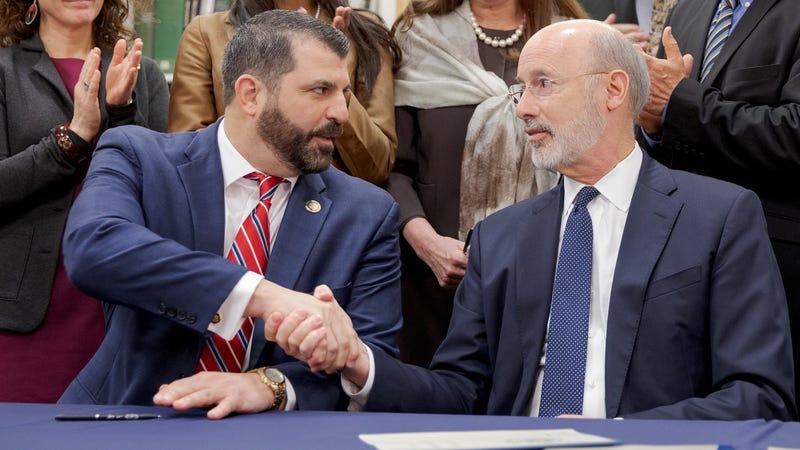
HARRISBURG, Pa. (KYW Newsradio) — The Pennsylvania House elected a speaker on Tuesday in a bipartisan vote, ending a monthlong power struggle between Republicans and Democrats — and opening up a whole new set of questions.
Berks County Democrat Mark Rozzi was nominated by a Republican and elected state House speaker with the support of members of both political parties. However, immediately after he was sworn in, Rozzi announced he would caucus with neither party, and that he would hire both Democrats and Republicans on his staff.
“I will tolerate no caucus and no member trying to outmaneuver the other. I will not tolerate incivility or lack of decorum,” Rozzi said.
“That's a positive development,” said former longtime legislative staffer and Republican strategist John Kelemen. “You have groups of legislators from both parties who are interested in making the process work. That should also be viewed in a positive way.”
There’s still a lot to be worked out, Kelemen said.
“They still need to settle on a rules package and the composition of the committee's moving forward,” he said. “And it's going to be interesting to watch things develop over the next several weeks.”
All legislation has to go through committee, and currently the 25-member standing committees have 15 members from the majority party, and 10 members from the minority party.
But Kelemen points out there’s no blueprint for this, so it’s all up in the air.
“With the uncertainty as to whether the Republicans or Democrats are the majority party, there's no natural option for which party will control the flow of legislation on the floor of the House and within committees,” said Kelemen.
Democrats won a one-seat majority in November’s election and expected Joanna McClinton, D-Philadelphia, to become speaker, but Democrats are down three members after a death and two resignations.
“With this new House, they could move to empower rank and file members and loosen the stranglehold that committee chairs had on the agenda of their respective committees,” Kelemen said.
It’s still not clear exactly how the Rozzi nomination happened. It came unexpectedly, just minutes after McClinton’s unsuccessful motion to adjourn.


